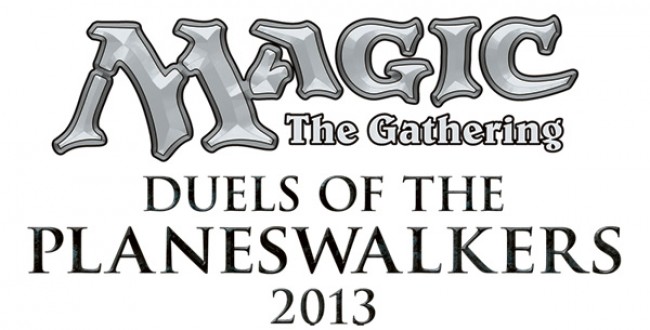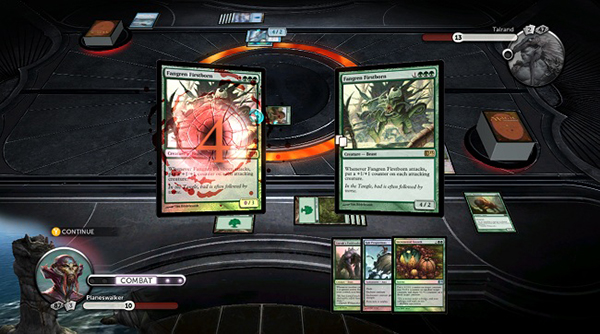With powerful hardware working together with an industry-leading camera system and intuitive AI experiences, everyday tasks have never been easier and faster
Reviewed — Magic: The Gathering 2013

Magic: The Gathering, released in the early 1990s, is the most widely played trading card game in the world. With numbers in the region of 12-million players and fans, Magic has expanded each year with new cards, rule tweaks, global tournaments and, more recently, tapping into the digital market.
This is hugely oversimplified though as the strategy and depth to this game is astounding, often intimidating newcomers. This is where the Duels of the Planeswalkers (Duels) series comes in. It’s not the full Magic experience, but a stripped down version, neatly wrapped up as a downloadable package in the hopes of attracting new players and, while they’re at it, advertising the new year’s decks to veterans.
Mono Modes
Now in its third iteration, the Duels series is available on XBLA, PSN, PC and now iPad too. Wizards of the Coast’s Duels 2013 is more of a refinement over 2012’s edition, and so there isn’t much that is new this year, essentially just the latest decks and one new game mode: Planechase.
The short Campaign sees you battle against other Planeswalkers in a pretty mundane storyline. As you progress you unlock cards for the deck that you are using, i.e. fight with the green deck, unlock a green card. Upon completing the Campaign you unlock Revenge mode, which is exactly the same thing, only much harder.
Scattered between campaign fights are Encounters. These random battles pose repeating challenges where the AI follows a set pattern such as throwing down the same type of creature each round. These battles are geared towards teaching you certain strategies but also unlock an extra card. Challenge mode also helps you improve by putting you in testing scenarios of varying difficulty so that you can develop even more tactics.
The brand new game option, Planechase, is a bizarre multiplayer mode. Ideally played with four players (or AI) the game uses the rolling of the die to modify the rules between rounds. This mode has replaced 2012’s Archenemy and is frenetic, unbalanced and, depending on how you look at it, a load of fun to play or highly frustrating. It screams casual, and seems to be an attempt to make Magic less serious.
If you choose multiplayer, you’ll see that hosting works quite well, but when joining a game “you’re gonna have a bad time”. Despite just not being able to join, if a player drops, rather than forfeiting the game, they get replaced by AI. This seems an odd choice now that Duels 2013 tracks your progress and stats such as win/loss ratios.
Timer’s up
One gameplay refinement is the addition of an extra phase, so your turn now goes main phase, combat, main phase, end. For some reason there is a timer during combat and end with no way to skip it. This means a five-minute battle ends up lasting 15 minutes for no apparent reason other than bad design. The menu UI is quite poor to navigate on PC, but the card artwork is attractive and the new zoom function very handy. Other refinements include a ‘combat circle’ in the centre of the table that glows when someone is in the combat phase, improved animations and manual mana tapping.
Duels 2013’s release on the iPad indicates a probable direction for the series. This review is based on the PC version, but given the UI, its sub par graphics and even its style of gameplay, Duels would probably work far better on tablet devices.
Noob This
There are ten new decks this year and except for the white/black Exalted deck, they are all single-coloured. This is rather cheeky, because most Magic players like to use decks that are at least two colours. Furthermore, there is no full deck customization, and so buying Duels won’t necessarily let you play Magic how you would like to. With the physical 2013 core decks coming out on July 13, it’s difficult not to see the Duels series as a bit of a marketing ploy for the decks.
And so it’s quite apparent that Duels 2013 is designed for newcomers. There is a full hint system at the press of a button, a substantial tutorial and the limitation of single-coloured decks makes the game far simpler (and leaves space for DLC). Add to that Planechase mode’s rather casual tendencies, and you’ve got a neat little package for just US$10, despite some UI and connectivity problems.
Duels 2013 is the most accessible Magic title to date, physical or digital, and it’s easily the best way to learn the game. Its future is most likely on tablet devices, especially if it wants to cater to the casual market. For Veterans though, it offers a pretty limited experience, and is really a deck advertisement hidden in a casual game. Ultimately, there might be something here for newcomers, but Magic junkies will just have to wait for DLC or pay money elsewhere, namely the physical game, to get their full Magic fix.



